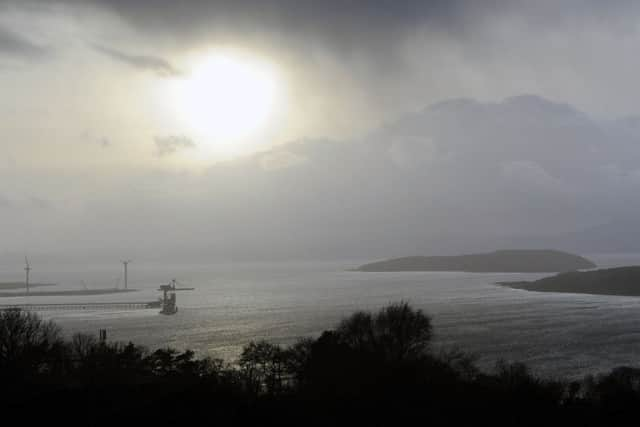Scottish lochs and rivers contaminated with plastic, research shows
The study, by scientists from Bangor University and environmental charity Friends of the Earth, is believed to be the first of its kind in the UK.
Water samples were taken from ten sites around the country, including Loch Lomond and Trossachs National Park, the Lake District and major cities.
Advertisement
Hide AdAdvertisement
Hide AdAnalysis showed pollutants such as plastic fragments, fibres and film were present in all of them.


Contamination levels at the Scottish sites were the lowest of all the water bodies tested, with two to four pieces per litre of water.
This compares to in excess of 1,000 pieces per litre found in the River Tame in Greater Manchester and 84 per litre in the Thames in London.
“It was more than a little startling to discover microplastics were present in even the most remote sites we tested, and quite depressing they were there in some of our country’s most iconic locations,” said Dr Christian Dunn, of Bangor University
He said the findings could be just “the tip of the iceberg” and called for the issue of plastic pollution in inland waters to be taken more seriously.
It’s estimated that 80 per cent of ocean plastic litter comes from land-based sources, travelling down rivers to the sea.
Plastic poses a significant threat to marine ecosystems, injuring and killing wildlife.
Around a million seabirds, 100,000 sea mammals and countless fish die annually.
Advertisement
Hide AdAdvertisement
Hide AdEnvironmentalists say much more needs to be done to tackle the crisis.
“Plastic pollution is everywhere – from hedgerows to rivers, on our highest mountains and at the depths of the ocean,” said Mary Church, head of campaigns for Friends of the Earth Scotland.
“Scotland must tackle plastic pollution at source, preventing its creation by getting to grips with industrial plastic pollution from manufacturing sites, and developing a circular economy.”
To date there has been little research on microplastic pollution levels in UK inland waters.
Environmental group Greenpeace has just announced it will carry out a nationwide study in partnership with the University of Exeter.
Water samples will be collected from rivers across the country, including the Clyde.
“More frightening facts seem to emerge about plastic pollution every month,” said Fiona Nicholls, plastics campaigner for Greenpeace UK.
“It’s in our water, our food, the air; it’s polluting the most remote parts of our planet. But the scariest fact is that if we carry on with business as usual plastic production is set to quadruple by 2050.
“It’s clear our rivers and oceans simply can’t stomach this.”